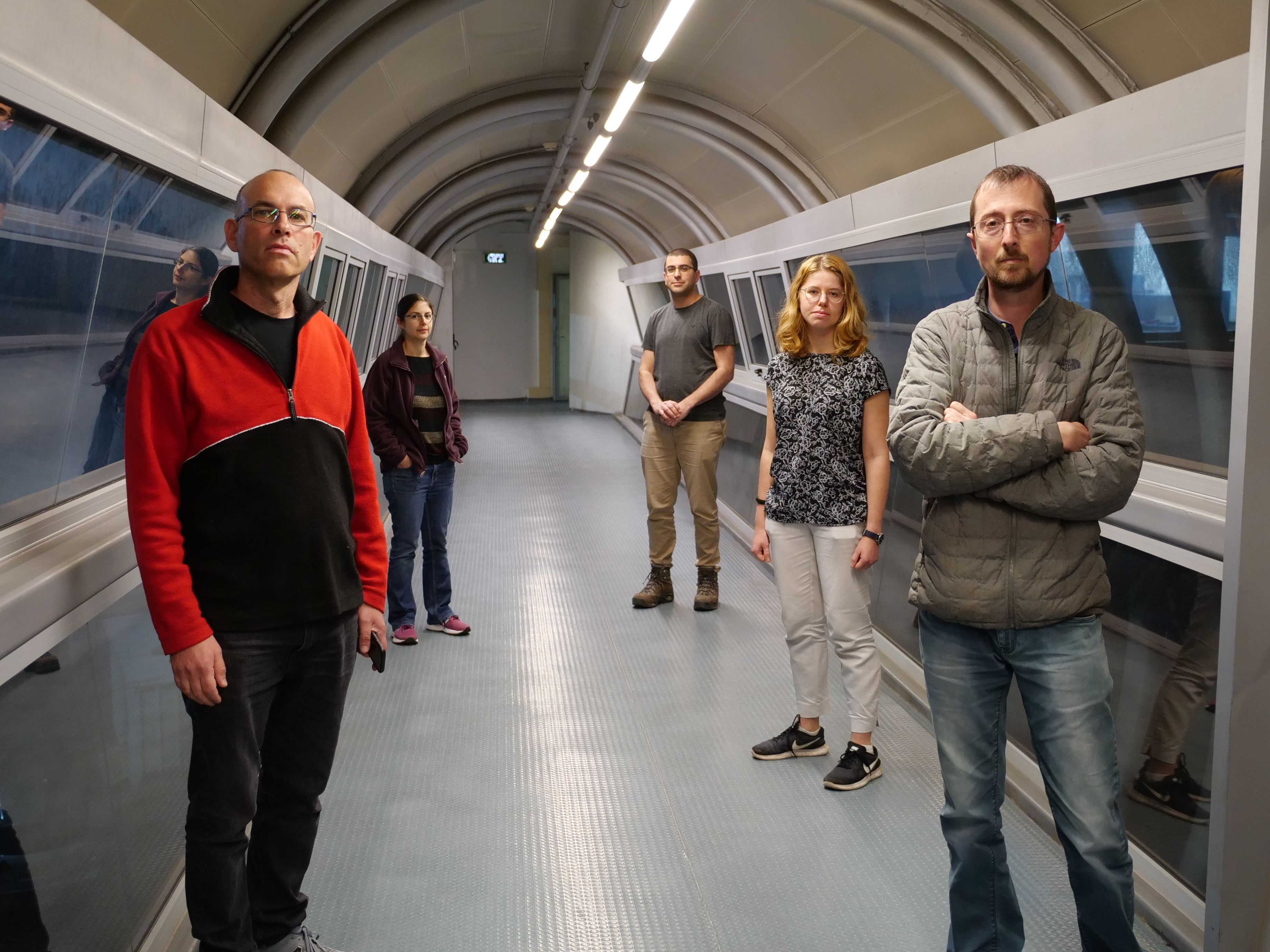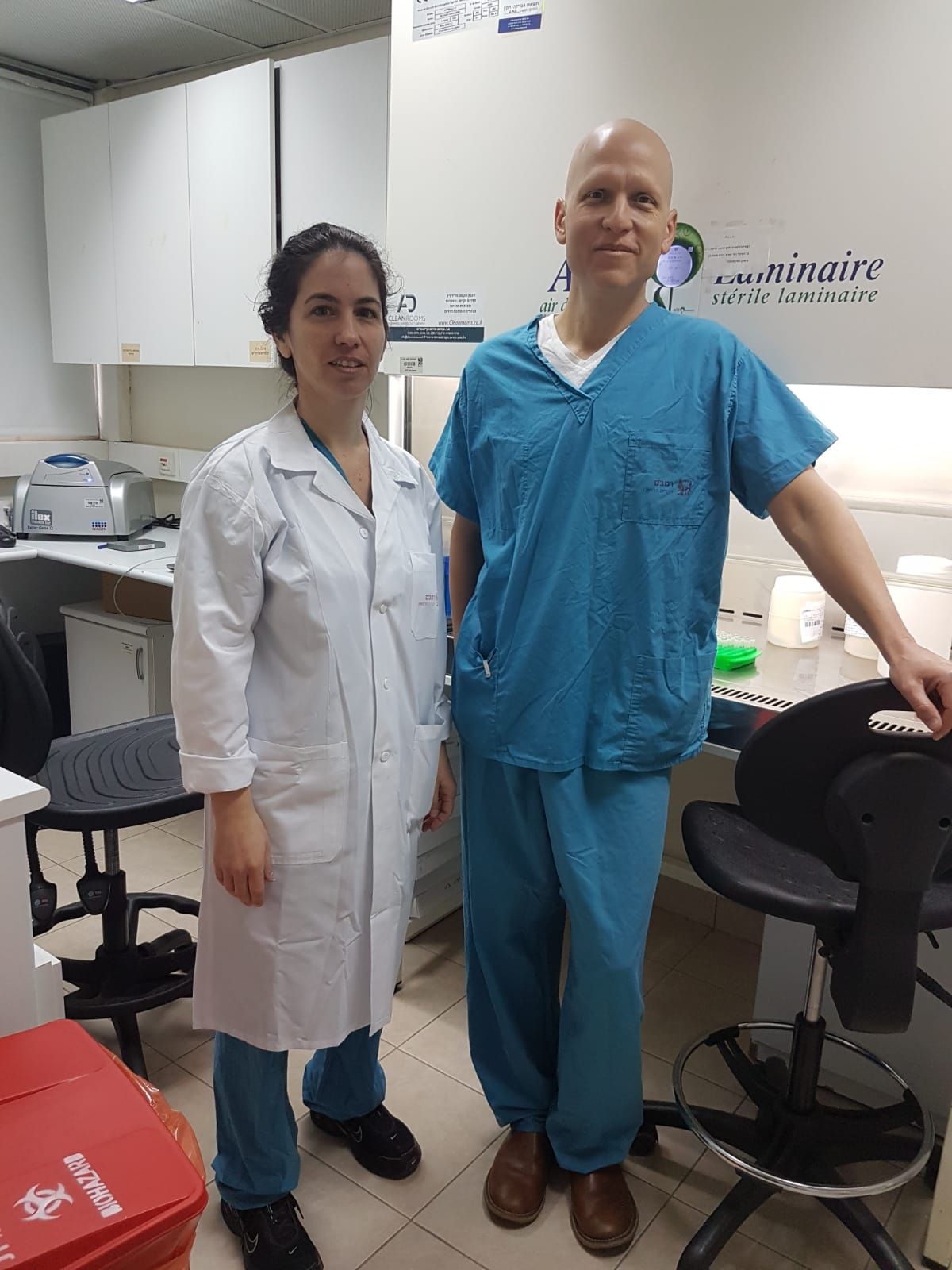- Details
- Written by Prime Minister's Media Adviser

The Cabinet has approved emergency regulations to reduce the spread of the corona virus in Israel. These include a further limiting of going out into the public sphere, the imposition of restrictions on public transportation and more.
The Cabinet, last night, approved emergency regulations to limit activity in order to reduce the spread of the coronavirus in Israel. The regulations include a further limiting of going out into the public sphere, the placing of responsibility on employers, the closure of non-essential shops and the imposition of restrictions on public transportation.
The regulations will take effect at 17:00 today (Wednesday, 25 March 2020), for a period of seven days.
According to the new emergency regulations, it will not be permitted to leave one's place of residence or regular domicile and go into the public sphere except or one of the following actions or objectives:
1) An employee going to permitted work, according to the regulations
2) Purchasing food, medicines, essential products and receiving essential services
3) Receiving medical treatment
4) Donating blood
5) Legal proceedings
6) Demonstrations
7) Going to the Knesset
8) Receiving treatment by social services
9) An individual or people who live in the same residence may leave said residence for a short time but may not venture more than 100 meters from said residence.
10) Providing medical assistance to a person in distress or who needs assistance
11) Prayer in an open space, funerals, weddings or circumcisions and women going to immerse in a mikveh provided her arrival is coordinated in advance.
12) Taking a minor to a designated educational framework (as per health regulations) for the children of essential workers
13) Transferring a minor, whose parents live apart, by one parent to the home of the other parent
14) Transferring a minor, when the parent responsible for him or her must attend to an essential need and when there is no one at the place of residence to assume responsibility for the minor
It was also decided to reduce public transportation to 25% of what currently prevails, as per the directives of the Ministry of Health.
Taxi services will be permitted for one passenger only or an additional accompanying person for medical treatment. Passengers will sit in the back; the windows of the vehicle shall be open.
The regulations stipulate that in the public sphere and in workplaces, a distance of at least two meters shall be maintained between individuals. Essential travel in private vehicles shall be limited to two passengers. Transportation to places of work shall be permitted subject to the limitations.
It is further determined that employers shall be responsible for taking temperatures at the entrance to the workplace. Anyone whose body temperature is 38 degrees Celsius or higher shall not be allowed to enter.
Food and newspaper delivery services shall be allowed to operate as will be essential services for home maintenance, electronic goods, communications services and medical devices. Online sales with home delivery is permitted for all types of products. Delivery personnel shall place the delivered items outside the door of the residence.
Businesses that sell food for consumption outside the premises where it is prepared and which is sent by delivery service only, pharmacies, optometrists or any shop the main occupation of which is the sale of hygiene products, will operate while maintaining a distance of two meters between individuals and preventing crowding. At no time will there be more than four customers per active cashier in the shop.
It is determined that violating the prohibitions will constitute a criminal offense; violators shall be subject to administrative fine. The regulations provide the police with the authority to enforce these instructions.
The final wording of the emergency regulations shall be published forthwith upon the completion of the necessary corrections by the relevant professional authorities.
In addition to the above, it will be underscored that there is a mutual need to adhere to the rules in order to defeat the spread of the virus. Individuals aged 60 and over, especially the elderly and at-risk groups, must remain at home and avoid risking themselves by going out.
- Details
- Written by Technion Spokesperson's Office and Rambam Spokesperson's Office

Pooling Method for Accelerated Testing of COVID-19
Technion and Rambam Health Care Campus scientists present a novel method for testing more than 60 patients simultaneously
Researchers at Technion - Israel Institute of Technology and Rambam Health Care Campus have successfully tested a method that will dramatically increase the current COVID-19 testing capacity using existing available resources. This method, known as pooling, enables simultaneous testing of dozens of samples. Its implementation has the potential to greatly accelerate the rate of testing and detection of COVID-19 infected patients in the population. The trial was completed in a matter of days thanks to the support of the Ministry of Health and the close collaboration between Technion and Rambam.
Testing for COVID-19 is currently being conducted in Israel with the focus on people with specific symptoms. The current rate of testing - about 1,200 a day – does not allow for monitoring of asymptomatic carriers in the population, which is vital to curb the epidemic.
COVID-19 is diagnosed with PCR testing, which is common for virus monitoring. This test examines the presence of a unique genetic sequence of viruses in a sample taken from the patient. The test takes several hours thus generating a bottleneck in identifying COVID-19 infected people in Israel and around the world. According to Dr. Yuval Gefen, director of the Rambam Clinical Microbiology Laboratory, “Today, we receive approximately 200 COVID-19 test samples a day, and each sample undergoes individual examination. According to the new pooling approach we have currently tested, molecular testing can be performed on a "combined sample," taken from 32 or 64 patients. This way we can significantly accelerate the testing rate. Only in those rare cases, where the joint sample is found to be positive, will we conduct an individual test for each of the specific samples.”
According to Professor Roy Kishony, head of the research group in the Faculty of Biology at Technion, “This is not a scientific breakthrough, but a demonstration of the effectivity of using the existing method and even the existing equipment to significantly increase the volume of samples tested per day. This is done by pooling multiple samples in a single test tube. Even when we conducted a joint examination of 64 samples in which only one was a positive carrier, the system identified that there was a positive sample. Although there are some logistical challenges in implementing the method, we expect that it will greatly increase the volume of samples tested per day so that we can identify the asymptomatic carriers. This approach should reduce the chance of infection and flatten the infection curve.”

Director of the Rambam Virology Lab, Dr. Moran Szwarcwort-Cohen estimates that, “implementing pooling in the final stage of the PCR test will make it easier for us to shorten the entire process and significantly increase the test rate.”
President of the Technion Professor Uri Sivan said: "This experiment conducted by Technion and Rambam researchers is complex, and under normal circumstances would take months. This is a remarkable example of the mobilization of an outstanding team in a time of crisis. The initial experiment was completed in less than four days. This achievement emphasizes the importance of the close relationship between Technion and Rambam and between medicine and engineering. Technion researchers have been enlisted in the war against the Coronavirus and this is one of the many activities currently underway at Technion to combat the spread of the disease.”
General Director of Rambam Health Care Campus Prof. Michael Halberthal said, “This collaboration between Technion and Rambam, for the benefit of all humanity, is just one example of many joint projects between the two institutions. These collaborations are designed to harness the multidisciplinary capabilities of Technion researchers for the advancement of medicine.”
The experiment was led at Technion by Dr. Idan Yelin, together with Noga Aharony, Einat Tamar, and Dina Berenbaum in Prof. Kishony's laboratory together with Amir Argoetti from Professor Yael Mandel-Gutfreund's laboratory, both labs are in the Faculty of Biology. Dr. Esti Messer, head of the Technon Biological Safety Dept, was enlisted to help set up the dedicated laboratory and accompanied the entire experiment. Prof. Kishony holds the Marilyn and Henry Taub Chair in Life Sciences. The Rambam Health Care Campus team was led by Dr. Yuval Gefen and Dr. Moran Szwarcwort-Cohen, and Prof. Michael Halberthal, Rambam General Director and CEO.
Photos
L to r: Prof. Roy Kishony, Einat Tamar, Amir Argoetti, Noga Aharony, and Dr. Idan Yelin
Dr. Yuval Gefen and Dr. Moran Szwarcwort-Cohen
More pics at Facebook Israel Diplo
Credit: Technion Spokesperson's Office and Rambam Spokesperson's Office
- Details
- Written by The Jewish Agency for Israel

Jewish Agency to Provide Emergency Assistance for Businesses Affected by Kite Terrorism
JERUSALEM, ISRAEL - The Jewish Agency for Israel will grant loans of up to 100,000 shekels to businesses affected by arson attacks and rocket fire originating in the Gaza Strip.
In recent months, terrorists have launched hundreds of kites, balloons and other flying objects set aflame over the Gaza border in order to wreak havoc on the Israeli side. According to Israel Fire and Rescue Services, some 300 fires have erupted in the area surrounding the Gaza Strip since border tensions rose in the spring of this year, affecting more than 60,000 acres. This has caused damage to farms in the area, and also to small businesses in the tourist industry including guest houses, restaurants and pubs.
The loans will help small and medium sized businesses near the Gaza border that have suffered under the recent kite arson attacks and rockets launched by Gaza terrorists in recent months. The loans will be granted with expedited processing and preferential terms.
The assistance will be provided through The Jewish Agency's Small Business Loan Fund program thanks to a special donation from the Ness Fund, which is supported by the Jewish Community Foundation of Greater MetroWest New Jersey and the Greater Miami Jewish Federation.
In response, The Jewish Agency's Small Business Loan Fund program activated the Ness Fund for the Development of the Negev. Jewish Agency assistance will focus on business in the fields of commerce, tourism and services. Agriculture businesses are handled by the Israeli government, as they are defined as victims of hostilities. As part of the emergency plan, loans will be granted to businesses located in the regional councils Hof Ashkelon, Sedot Negev, Shaar Hanegev, Eshkol and Merhavim, as well as the cities of Sderot and Netivot.
The Ness Fund for the Development of the Negev, which regularly supports dozens of businesses in Israel’s south, is one of eight funds operated by the Jewish Agency's Small Business Loan Funds program. The Jewish Agency funds are made possible by the generous support of Jewish communities, and provide loans under advantageous conditions to entrepreneurs who are starting a new business or expanding an existing business in Israel’s social and geographic periphery. The loans are provided by Bank Otsar Hahayal with The Jewish Agency serving as a partial guarantor for the businesses that would otherwise find it difficult to obtain a loan or to provide the necessary collateral.
Amir Sznajderman, Director of the Small Business Loan Funds program at the Jewish Agency, noted that "The Jewish Agency's funds provide quick assistance under preferential terms for businesses, both in routine and emergency situations." Since the program started, The Jewish Agency’s Loan Funds program has helped 1,900 businesses and entrepreneurs, loaning more than 320 million shekels and creating about 9,000 new jobs. "
The interest charged on the loans is prime + 1.5% with a grace period of 6 months followed by 5 years of repayment of principal and interest. The Jewish Agency will provide a residual guarantee of up to 70% of the loan and the borrowers will provide one guarantor for the loan.
For more information about the loan program, please contact Tamar Dai, representative of The Jewish Agency's Loan Funds program in the south: This email address is being protected from spambots. You need JavaScript enabled to view it.
- Details
- Written by Israel's Foreign Affairs Ministry

On March 17, 1992 , At 14.45hs a powerful bomb shattered the building of the Israel Embassy in Buenos Aires, taking the lives of 29 people. Hezbollah, calling itself a "party of God", claimed responsibility for the attack.
Bombing of the Israel Embassy in Buenos Aires, 1992
At 14.45 on March 17, 1992 a powerful bomb shattered the building of the Israel Embassy in Buenos Aires, taking the lives of 29 people, among them three Israeli embassy personnel, six local embassy employees, and scores of innocent Argentineans, including elderly residents of a nearby nursing home, and schoolchildren on a passing bus.
In one moment, the embassy and the nearby church were literally wiped off the map. Hezbollah, calling itself a "party of God", claimed responsibility for the attack.
The Argentine Supreme Court ordered an expert investigation of the attack which was carried out by the head of the national police bomb disposal and explosives unit. The result was conclusive: "The explosion took place outside the building when a car bomb struck the embassy building." Nonetheless, in 1996 the Argentine Supreme Court issued a statement saying it was impossible to determine who was responsible for this act of terror.
In May 1999, following a formal investigation, the Argentinian Supreme Court accused Hezbollah of the attack and issued an arrest warrant for Imad Mughnieh, commander of Hezbollah military-terrorist wing. An investigation carried out by Israel, whose findings were made public in 2003, showed that the highest levels of the Iranian regime were aware of Hezbollah's intention to carry out the attack and had in fact authorized Hezbollah to carry it out.
The 2006 report of the findings of the special team which investigated the terrorist attack which destroyed the Jewish Community Center building (AMIA) in Buenos Aires (18 July 1994) states that according to expert testimony, "the modus operandi of the attack was identical to the method employed two years previously in the attack on the Israeli embassy in Buenos Aires (an attack that the Argentinean Supreme Court found was the work of Islamic Jihad in its capacity as the military wing of Hezbollah)."
To date, no one has been brought to justice for these attacks. Israel remains convinced of Iranian responsibility for the bombing of the embassy in 1992 and of the Jewish community center AMIA.
On March 17, 2000, a memorial was inaugurated on the site of the former embassy
A marble monument, a replica of the column of the original embassy building, stands today in the Israeli Embassy in Buenos Aires, in memory of those who died who died on that fateful day in 1992, bearing the verse of the prophet Amos: "I will raise up its ruins and rebuild it as in the days of old."
Youtube Remembering the Terrorist Bombing of Israel's Embassy in Buenos Aires https://youtu.be/ldRRpLCqOpc
Credit :Israel's Foreign Affairs Ministry
Foto :Israel's Foreign Affairs Ministry
- Details
- Written by Silvia

100 Years of Knowledge Hebrew University Celebrates its 100th Cornerstone Anniversary
The Hebrew University of Jerusalem (HUJI) is proud to celebrate the 100th anniversary of its founding in 1918. The festivities coincide with HUJI’s 2018 Board of Governors meetings on June 8-13.
Not long after the end of World War I, the British Empire granted permission to create a Hebrew University in Jerusalem. On July 24, 1918, Lord Edmund Allenby, Zeev Jabotinsky, Chaim Weizmann, and James Rothschild, along with 6,000 other dignitaries—both Jewish and non-Jewish, from Israel and abroad—gathered atop Mount Scopus to lay the cornerstones for Hebrew University. They placed 12 stones, corresponding to the 12 Tribes of Israel, firmly in the ground and the rest, as they say, is 100 years of history, innovation, growth and vision.

Highlights:
v Cedar & Son at the Jerusalem Cinematheque
Saturday, June 9 at 9 pm
An inter-generational dialogue between HUJI prof. Haim Cedar and his award-winning filmmaker son, Joseph Cedar (Director: Norman, Footnote).
v HUJI Talks: To 100 and Beyond
Sunday, June 10 at 1015am (Dan Hotel- Mt Scopus)
Speakers include philosopher Yuval Noah Harari and medical marijuana expert Raphael Mechoulam, among others.
v President Reuven Rivlin Honors Israeli Excellence
Tuesday, June 12 at 10 am (President of Israel’s Residence)
A reception honoring HUJI Nobel, Fields and Israel Prize winners.
v Ceremony: Re-dedicating the Cornerstones
Tuesday, June 12 at 7 pm (Ferkauf Plaza, Mt. Scopus Campus)
HUJI friends from around the world, some in period dress, will enter a time capsule with blessings for the University’s next 100 years of vision and innovation. Current HUJI professors, including Sergio Della Pergola, whose grandparents attended the original 1925 cornerstone event will be in attendance, as will several families that have been studying at the Hebrew University for 3 generations—i.e., grandparents, parents and now, grandchildren.
A complete list of HUJI Anniversary events: http://hubog-2018.com/
Photo from the 1918 Cornerstone Ceremony: Credit: Hebrew University








